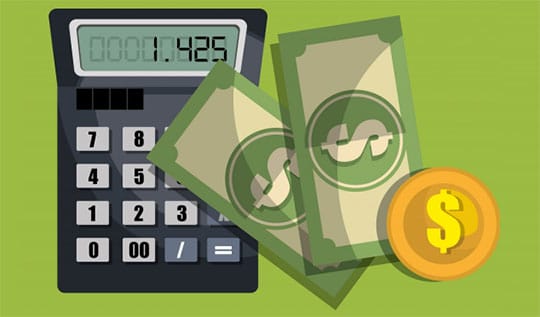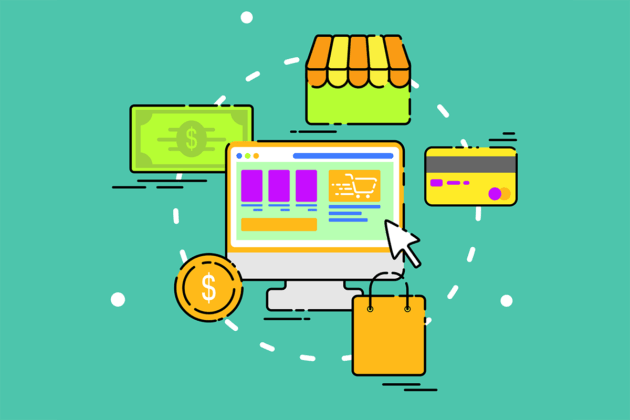An efficient payment gateway adds to payment safety, resulting in customer loyalty and higher profits. Implementing a payment gateway in your eCommerce store ensures a swift, seamless checkout experience and increases sales. Payment gateways often comply with security standards such as PCI DSS, guaranteeing secure transactions. They also integrate with shopping carts, offer faster payment processing, accept multiple payment options, including ACH transfers, provide chargeback prevention, and ensure fraud management and recurring billing.
Picking a payment gateway for your business can be challenging. However, the right option should be reliable and meet your business’s current and future requirements. Below are the things to consider when choosing a payment gateway for your eCommerce store.
1. Payment methods

The payment gateway you pick for your eCommerce store should support your customers’ preferred payment methods. While some customers prefer using credit cards, others pay with ACH, PayPal, Google Pay, American Express, bank transfers, and others. Understanding your customer base and their preferred payment options helps you choose a payment gateway they can resonate with, improving user experience and reducing shopping cart abandonment rates.
Recommended for you: How to Optimize WooCommerce Product Images for SEO?
2. Security

Online shopping threatens customer data security. An ideal payment gateway should implement best security practices to secure customer financial data when shopping on your site. It must have elevated encryption levels and a digital signature as an added security layer. It should also implement Dynamic IPs to ensure your records can’t be accessed from other IP addresses.
When choosing a payment gateway platform, ensure it has the right security features and considers searching their PCI-DSS certification for secure transactions. Look at the fraud detection and prevention methods they offer and consider whether they have 3D Secure, which requires a one-time-use code from the consumers to authorize their transactions.
3. Pricing

Payment gateway pricing varies depending on your business model, the amount you accept monthly or annually, the payment types you accept, the features you need, revenue and transaction consistency, the markets you serve, and more. Before settling on a specific payment gateway, determine how much money you accept regularly and research how various payment gateway providers price their services.
If you are a new business, compare the setup fees by different providers. Your transaction volume will also be considered. If you’re on a specific plan and are yet to meet your quota, some providers might charge you an additional amount for it. Before settling on a particular gateway platform, examine your finances and your future growth plan.
4. Recurring billing option

Recurring billing implies that your customers pay the same amount each month for a subscription service. An excellent payment gateway lets you automate the billing cycle for such transactions. The recurring payment model helps ensure your business maintains an ongoing relationship with its customers rather than a one-time interaction. A payment gateway with this option enhances convenience for merchants and customers alike.
Since the payments are automated, you can reduce collection time, late payments, and the effort and cost associated with manual payment solutions. An excellent subscription experience improves customer experience, boosting customer loyalty, and increasing customer lifetime value. This ensures improved returns on customer acquisition costs. A recurring billing option presents revenue expansion opportunities, ensures a steady income, reduces costs, and saves time.
5. Customer support

Choosing a payment gateway that doesn’t offer technical assistance means you have to rely on manual instructions to fix any arising issues. This may cost your business money and time and bruise your business reputation. To avoid such concerns, consider whether the provider offers live, round-the-clock support, including chat options, messaging, or calls to ensure technical issues are resolved rapidly.
6. Simple and smooth integration

Payment gateways don’t function on their own. They’re part of an infrastructure, and you must determine how seamlessly and easily they integrate with your website. If integrations don’t function properly, your payment process may be affected, causing customers to abandon their shopping carts. Choose a payment gateway solution that won’t ruin your site’s user experience with slow payment processes.
7. Your customers

Your payment gateway choice should consider your customer’s geographic location and demographics to determine the payment methods they’re accustomed to or require. For instance, older generations might prefer familiar and traditional payment options like debit and credit cards, while millennials are more inclined to innovative payment options. To find the best payment gateway option for your eCommerce store, conduct a comprehensive competitor analysis or survey to learn about the preferred payment options for your competition and their consumers. Consider multiple payment gateways to cater to their preferences.
8. Reliability and performance

The checkout point user experience can directly impact your sales. Consider processing speed when comparing potential payment gateway alternatives. Your payment gateway of choice should have the lowest downtime possible. The transaction decline and the success rate is another vital aspect to consider. Additionally, there could be various reasons for a transaction to be declined, including incorrect or invalid credit card details, suspicious activity, insufficient funds, and more.
You may like: 10 Tips to Improve the Design of an eCommerce Website in 2022.
9. Integrated versus hosted payment gateways

Research the pros and cons of various payment gateway options to find the one suitable for your eCommerce store. Hosted payment gateways direct your customers to a payment processor platform to allow them to enter their payment details. They’re easy to set up and excellent for new stores, and they can lower conversion rates where customers are familiar with the processor.
Integrated payment gateways interface with eCommerce websites using the API integration feature. With this gateway, your customers don’t need to leave the store to input payment information and complete their transactions. When choosing your eCommerce store’s payment gateway, know your purpose and pick the one that suits your goals and requirements.
10. User experience

If shoppers have difficulties using your payment gateway, they will likely abandon it. If your gateway doesn’t show trust, is hard to use, or seems out of place, you could lose customers. Your customers could abandon their shopping carts if payment isn’t mobile device supported and the payment gateways are few. Ensure the payment gateway you choose is supported on every device and offers several options to enhance customer experience. You can also gain customer trust by displaying logos for the standard payment method you accept, including MasterCard, Visa, American Express, or other local methods.
You should also clearly explain or display the offsite payment methods you use. Avoid sending shoppers offsite for payments as this could negatively impact your user experience. The checkout pages should align well with the rest of your site. The process shouldn’t involve too many steps because the customer could abandon your site searching for a simpler process. Consider reassuring your customers that their sensitive data is secure.
11. Your business needs

Classic payment gateways require a merchant account to transfer funds into your account. Nonetheless, modern payment gateways don’t need an account because they draw money directly from clients’ credit cards or bank accounts and, upon validating them, put the money directly into your account. While modern payment gateways need you to do less to receive money from customers and utilize them, they charge a higher transaction fee, which may reduce your conversion rates.
Classic gateways are more secure and safer, making them a better choice for your eCommerce store. Additionally, their transaction fees are lower than for the modern gateways. When looking for a suitable payment gateway, ensure it aligns with your business needs.
12. Proper payment flow

As your eCommerce business expands, the right payment gateway should also scale effortlessly. The main payment gateways provide various options for the consumers who wish to pay, including:
- A site with integrated payment forms because payments are sent to secure payment gateways: These forms contain the necessary details, passing them to the gateway providers via an integrated API.
- Escrow system: When you create an escrow system on your site, money is withheld until the admin gives proper authority.
- iFrame or redirect for payments: customers can be directed to secure hosted payment pages or be required to enter their details on an embedded iFrame. Developers can leverage this option as it requires less integration time.
Choose the correct payment flow for your eCommerce store to add a payment gateway to your site.
13. Does your eCommerce site support your gateway?

Your preferred payment gateway method will be integrated into your eCommerce website. Consult your site service provider to determine if they can support your customers’ preferred payment options, the gateways they can support, and if they can offer more than one. Find out if they integrate through API and if yes, does the integration require development, or is it ready for use? Find out if they issue a complete site SSL (Secure Socket Layer) certificate.
14. The payment gateway provider’s reputation

Before settling on a specific payment gateway service provider, it’s essential to read reviews and other reliable information sources to see what users and past customers say. Find out if they’re genuinely helpful, help solve issues, and how they treat the merchants using their services. Consider how well-trusted they are and if there have been recent security breaches. Choose a payment gateway from a provider with an excellent reputation to avoid future concerns.
You may also like: Top 11 B2B eCommerce Platforms for Multi-Vendor Marketplaces in 2022.
Endnote

The right payment gateway speeds up your business’s payment processes, improving your bottom line. Consider these things when choosing a payment solution for your eCommerce store.






